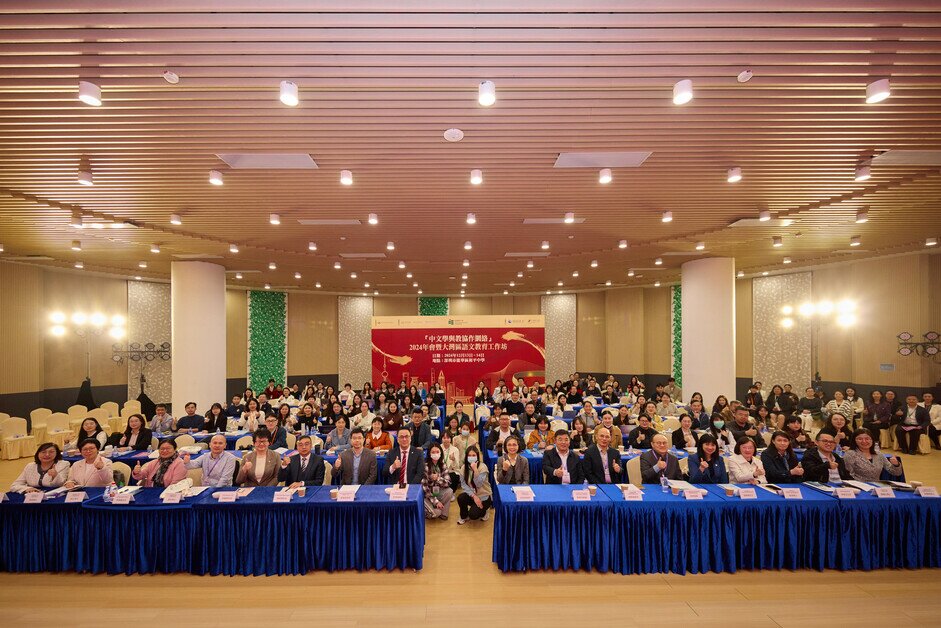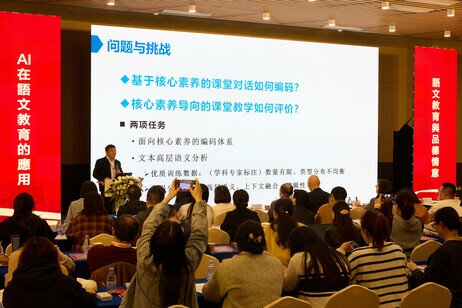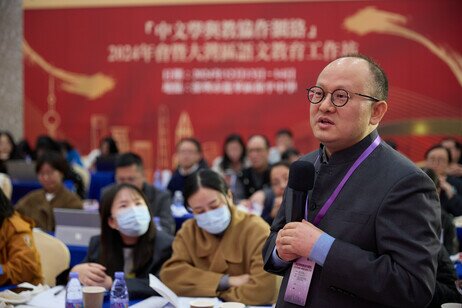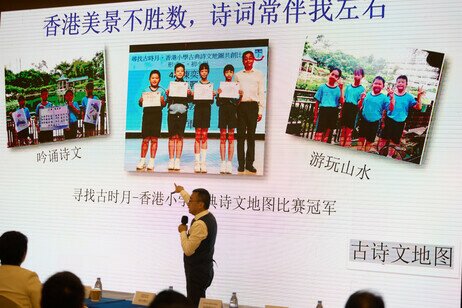EdUHK Holds Chinese Language Learning and Teaching Collaboration Network 2024 Annual Conference and Workshop
The Education University of Hong Kong (EdUHK) held the “Chinese Language Learning and Teaching Collaboration Network (Collaboration Network) 2024 Annual Conference and Workshop (conference)” at Shenzhen Heping School on 13 and 14 December. The initiative provided a platform for education practitioners to exchange professional experiences and resources in Chinese language education. Over 120 education scholars and teachers from Beijing, Shenzhen and Hong Kong joined the event.
The conference was organised by EdUHK's Faculty of Humanities and the Department of Chinese Language Studies, co-organised by the Shenzhen Institute of Education Sciences, and assisted by the Centre for Research on Chinese Language and Education, the School Partnership and Field Experience Office at the University, and the Guangdong-Hong Kong-Macao University Alliance (GHMUA) for Chinese Language Education. It featured the themes of ‘The Application of Artificial Intelligence (AI) in Chinese Language Education’ and ‘Chinese Language Education and Moral Development’, addressing cutting-edge issues in the field today. Four scholars were invited as keynote speakers, including Professor Zheng Guomin from Beijing Normal University, Mr Xiang Hao, Director of Curriculum and Instruction Department from Shenzhen Longhua District Sciences and Education Institute, Principal Mr Chan Ka-wai from The NTWJWA Leung Sing Tak Primary School, and Professor Timothy Chan Wai-keung from EdUHK.
Professor Zheng Guomin spoke on the topic, “Automated Generation of Teaching Design for Selected Classics in Language Education at Secondary Schools." He discussed how to address common issues in the field, such as outdated designs in AI language models and their inability to align with core competencies. Mr Xiang Hao delivered a keynote speech entitled, “Digital Empowerment: Making Writing Learning Visible”, introducing various strategies for teaching writing and sharing experiences of using AI to assist students. Mr Chan Ka-wai focused his talk on “An Initial Exploration of Tang Poetry and Song Lyrics”, discussing the importance of poetry education in moral and emotional development, and showcasing the results of his students’ study of poetry. Finally, Professor Timothy Chan Wai-keung gave a speech on “The 'Moral' and 'Emotion' of Overseas Chinese Language Education”, highlighting the contributions of sinologists and the challenges facing sinology research.
The conference also featured four workshops focusing on topics such as AI applications in Hong Kong, language teaching in schools for Hong Kong children in mainland China, the teaching of classical poetry and moral education in Hong Kong secondary schools, and emotional teaching in language subjects in Shenzhen. Participants were able to share their successful experiences for others to learn. Additionally, there were two discussion sessions corresponding to the event's themes, allowing participants to share teaching insights and experiences, fostering collaboration and refinement. Looking ahead, the Collaboration Network will continue to uphold its mission and further foster the exchange and development of language education within the Greater Bay Area.
The Collaboration Network was launched by the Department of Chinese Language Studies (CHL) of the University in 2020 to expand the teaching and research network of EdUHK with primary and secondary schools in Hong Kong, and to strengthen curriculum development. It is committed to building a professional platform for Chinese language education, sharing high-quality learning and teaching resources, and improving teaching.
EdUHK Holds Chinese Language Learning and Teaching Collaboration Network 2024 Annual Conference and Workshop
Download all images







